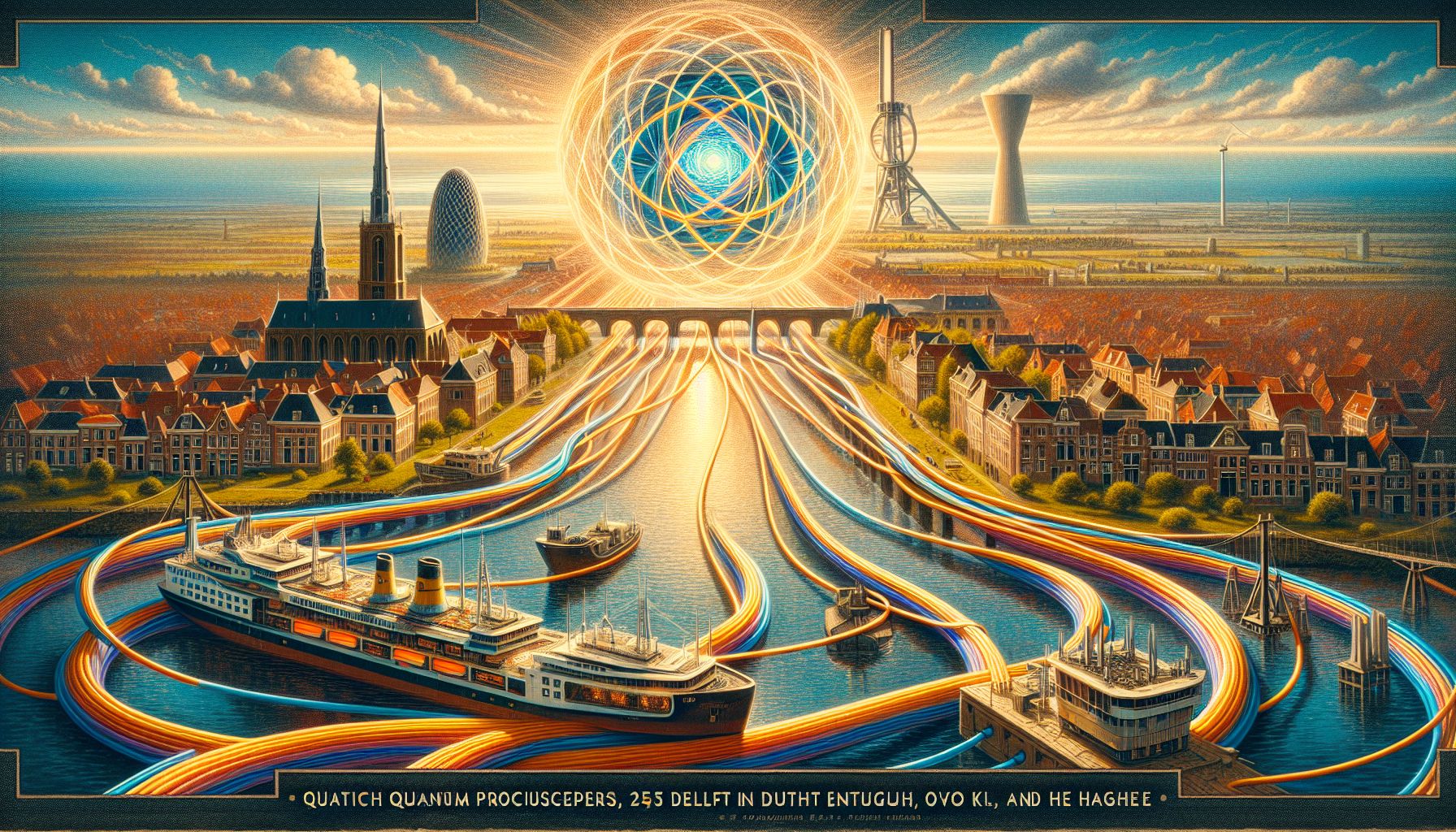Quantum Leap: Dutch Cities Connected by 25km Quantum Network

Delft, Thursday, 31 October 2024.
QuTech researchers have achieved a breakthrough in quantum networking, linking quantum processors between Delft and The Hague over 25 km of deployed fiber. This milestone marks a significant step towards realizing a functional quantum internet, overcoming real-world challenges and setting a new distance record for quantum processor connections.
A Step Forward in Quantum Computing
The recent breakthrough by QuTech in connecting quantum processors over a substantial distance of 25 kilometers between Delft and The Hague represents a significant milestone in the field of quantum computing. This advancement is not only a testament to the progress made in the quantum realm but also highlights the collaborative efforts of an international research team led by Ronald Hanson, based at QuTech in the Netherlands. QuTech, a pioneering institution in quantum research, has been at the forefront of developing technologies that aim to transform the future digital infrastructure.
The Mechanics of Quantum Networking
The connection established between the quantum processors utilizes independently operated nodes integrated with existing optical internet fiber, demonstrating a photon-efficient protocol that includes diamond spin qubits. This setup allows for the creation of quantum entanglement over long distances, marking a record achievement for quantum processors. The project also involved critical contributions from entities such as Fraunhofer ILT, OPNT, Element Six, and Toptica, with KPN providing the necessary fiber infrastructure[1].
Benefits and Implications
The potential benefits of this quantum network are profound. Quantum links can facilitate secure encryption keys, offering enhanced data security and enabling secure communication over vast networks. Furthermore, the ability to connect quantum computers over long distances could lead to significant advancements in computational power and efficiency, thereby transforming sectors such as finance, healthcare, and artificial intelligence[2].
Challenges and Future Prospects
Transitioning from laboratory experiments to real-world applications posed several challenges, including mitigating photon loss and ensuring reliable entanglement confirmation. The team’s success in overcoming these obstacles is a pivotal step towards the practical implementation of a quantum internet. As Jesse Robbers from Quantum Delta NL remarked, this achievement underscores the leadership role that the Netherlands continues to play in developing the digital infrastructure of the future[1].

